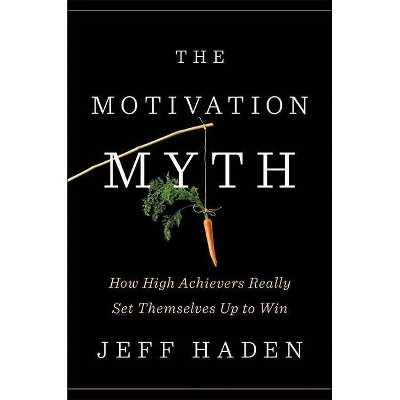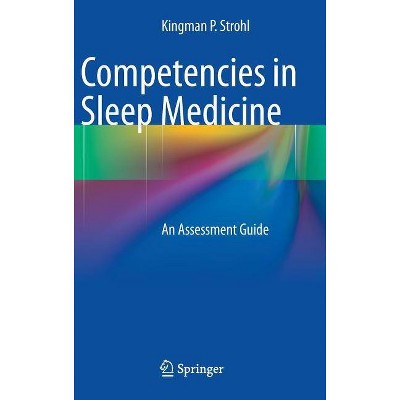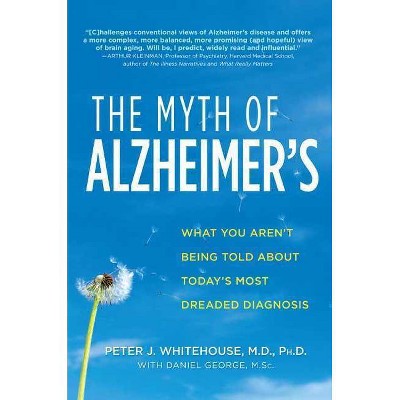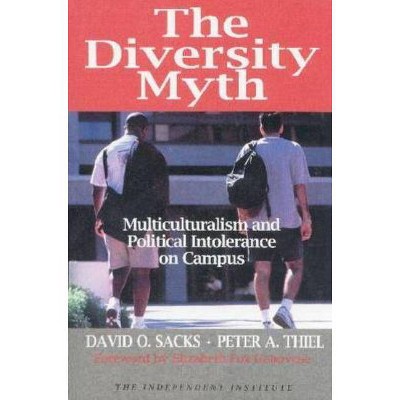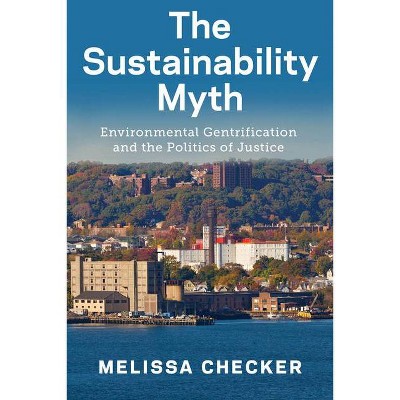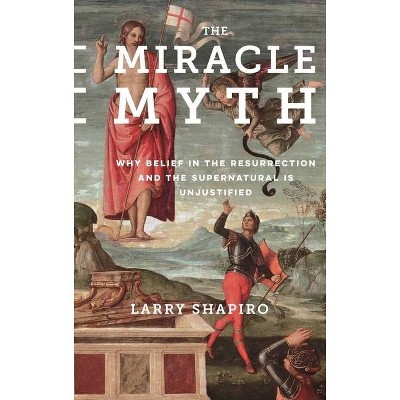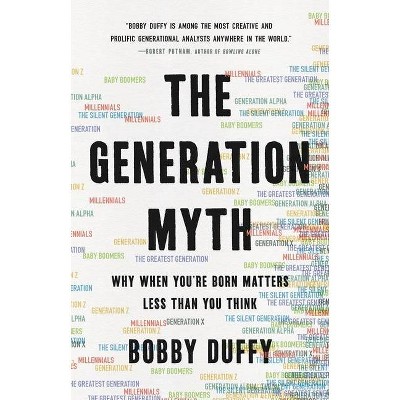The Merit Myth - by Anthony P Carnevale & Peter Schmidt & Jeff Strohl (Hardcover)
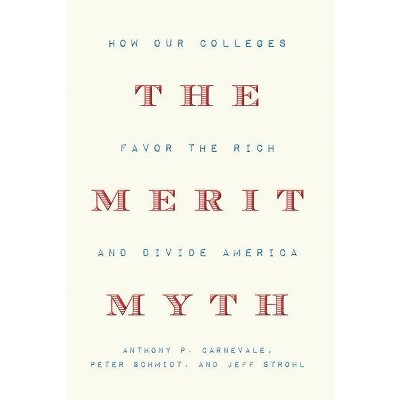
Similar Products
Products of same category from the store
AllProduct info
<p/><br></br><p><b> About the Book </b></p></br></br>"An eye-opening and timely look at how colleges drive the very inequalities they are meant to remedy, complete with a call - and a vision - for change"--<p/><br></br><p><b> Book Synopsis </b></p></br></br><b>An eye-opening and timely look at how colleges drive the very inequalities they are meant to remedy, complete with a call--and a vision--for change</b> <p>Colleges fiercely defend America's deeply stratified higher education system, arguing that the most exclusive schools reward the brightest kids who have worked hard to get there. But it doesn't actually work this way. As the recent college-admissions bribery scandal demonstrates, social inequalities and colleges' pursuit of wealth and prestige stack the deck in favor of the children of privilege. For education scholar and critic Anthony P. Carnevale, it's clear that colleges are not the places of aspiration and equal opportunity they claim to be.</p> <p><em>The Merit Myth</em> calls out our elite colleges for what they are: institutions that pay lip service to social mobility and meritocracy, while offering little of either. Through policies that exacerbate inequality, including generously funding so-called merit-based aid for already-wealthy students rather than expanding opportunity for those who need it most, U.S. universities--the presumed pathway to a better financial future--are woefully complicit in reproducing the racial and class privilege across generations that they pretend to abhor.</p> <p>This timely and incisive book argues for unrigging the game by dramatically reducing the weight of the SAT/ACT; measuring colleges by their outcomes, not their inputs; designing affirmative action plans that take into consideration both race and class; and making 14 the new 12--guaranteeing every American a public K-14 education. <em>The Merit Myth</em> shows the way for higher education to become the beacon of opportunity it was intended to be.</p><p/><br></br><p><b> Review Quotes </b></p></br></br><br><p><strong>Praise for <em>The Merit Myth</em>: <br /></strong>Those interested in inequities in the admissions practices of elite colleges will find this a considered examination.<br />--<strong><em>Library Journal</em></strong></p> <p>A strong argument for educational reform at every level in order to make schooling truly equitable.<br />--<em><strong>Kirkus Reviews</strong></em><br /> <br /><em>The Merit Myth</em> . . . meticulously detail[s] the many ways U.S. colleges favor the rich.<br />--<em><strong>The Hechinger Report<br /><br /></strong></em>"<em>The Merit Myth</em> offers compelling policy proposals to address an increasingly fractured society, including a tax on wealthy colleges' endowments, the end of legacy admissions and for all Americans to complete a minimum of two years of college."<br />--<em><strong>Times Literary Supplement<br /></strong></em></p> <p>Rooted in history, packed with detail, <em>The Merit Myth</em> exposes with passion and precision the deep structural inequities that stain American higher education today. A powerful and convincing case that we can and must do better.<br />--<strong>Paul Tough, author of <em>The Years That Matter Most: How College Makes or Breaks Us</em></strong><br /> <br />Does college matter? Carnevale, Schmidt and Strohl answer the question definitively--hell yes!--with unassailable data, compelling stories, and smart reasoning. <em>The Merit Myth </em>shows that in an era where fairness and economic justice are being thwarted, the best path to upward mobility is through high-quality postsecondary learning.<br />--<strong>Jamie Merisotis, president and CEO, Lumina Foundation</strong><br /> <br />A powerful wake-up call to the widening gap between America's educational haves and have-nots, and [a counter to] the laissez-faire presumption that business-as-usual will fulfill higher education's responsibilities as the prime lever to social mobility in a knowledge economy.<br />--<strong>Nancy Cantor, chancellor, Rutgers University-Newark</strong></p><br><p/><br></br><p><b> About the Author </b></p></br></br><p><strong>Anthony P. Carnevale</strong>, a chairman under President Clinton of the National Commission on Employment Policy, is the director of the Georgetown University Center on Education and the Workforce. He lives in Washington, DC.</p> <p><strong>Peter Schmidt</strong>, the author of <em>Color and Money</em>, is an award-winning writer and editor who has worked for <em>Education Week</em> and the <em>Chronicle of Higher Education</em>. He lives in Washington, DC.</p> <p><strong>Jeff Strohl</strong> is the director of research at the Georgetown University Center on Education and the Workforce. He lives in Washington, DC.</p>
Price History
Cheapest price in the interval: 18.99 on November 8, 2021
Most expensive price in the interval: 20.99 on October 22, 2021
Price Archive shows prices from various stores, lets you see history and find the cheapest. There is no actual sale on the website. For all support, inquiry and suggestion messagescommunication@pricearchive.us
